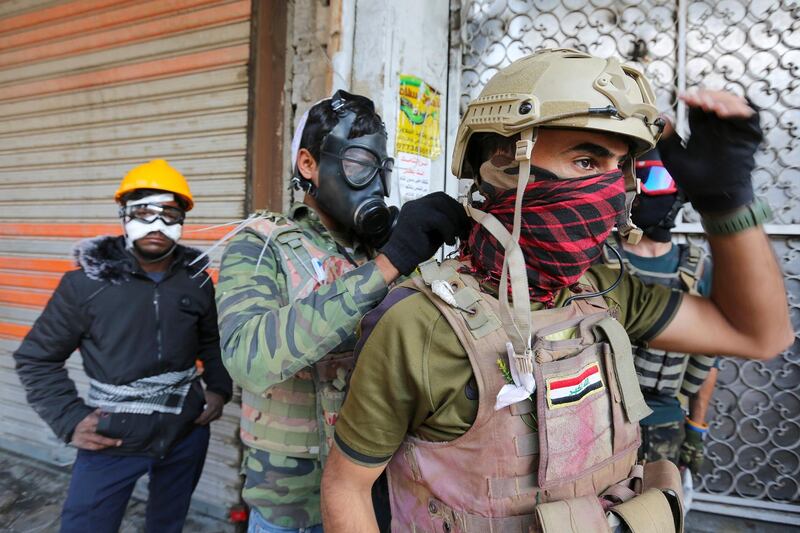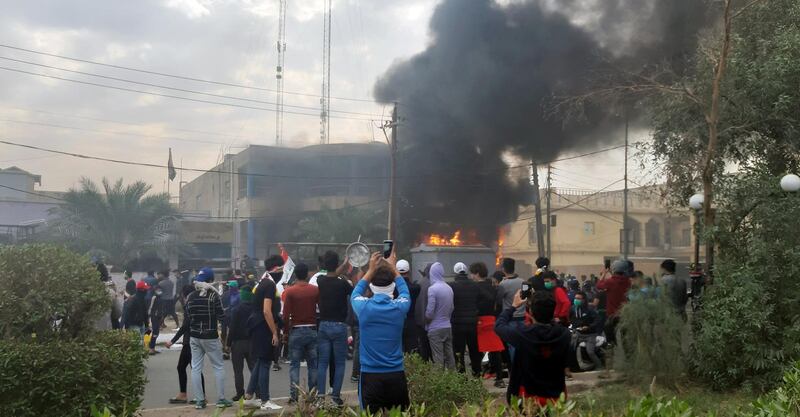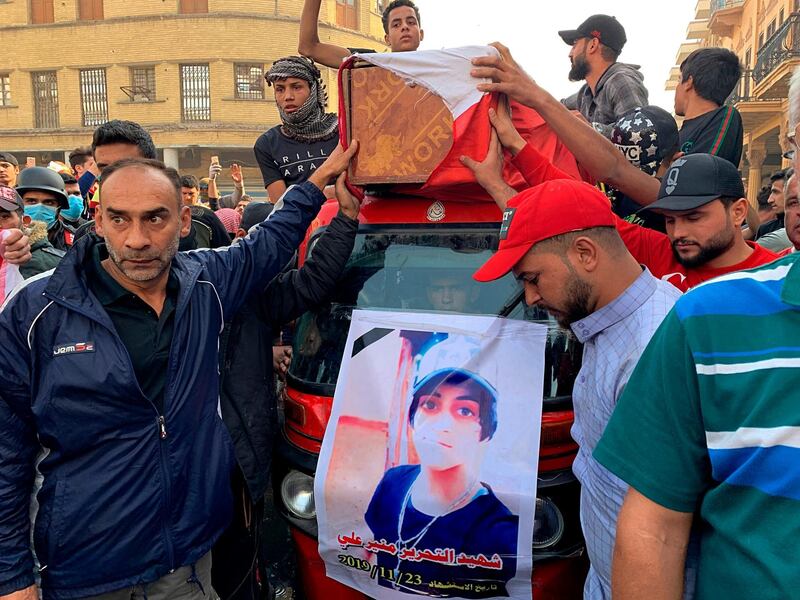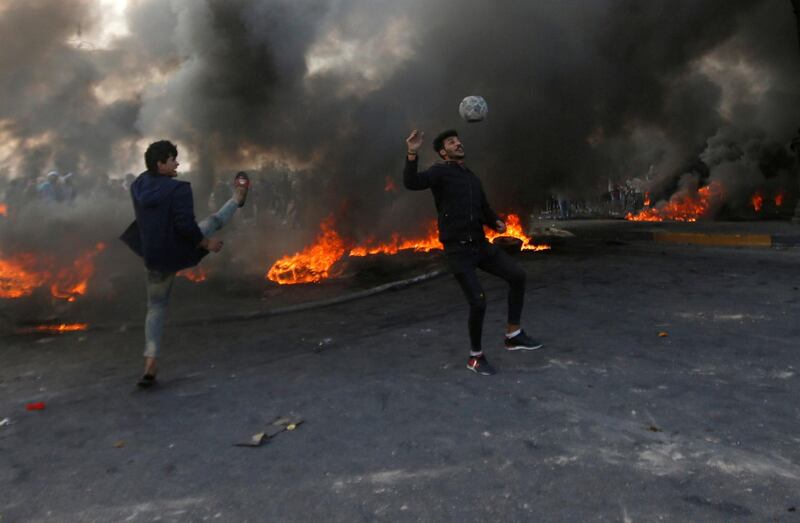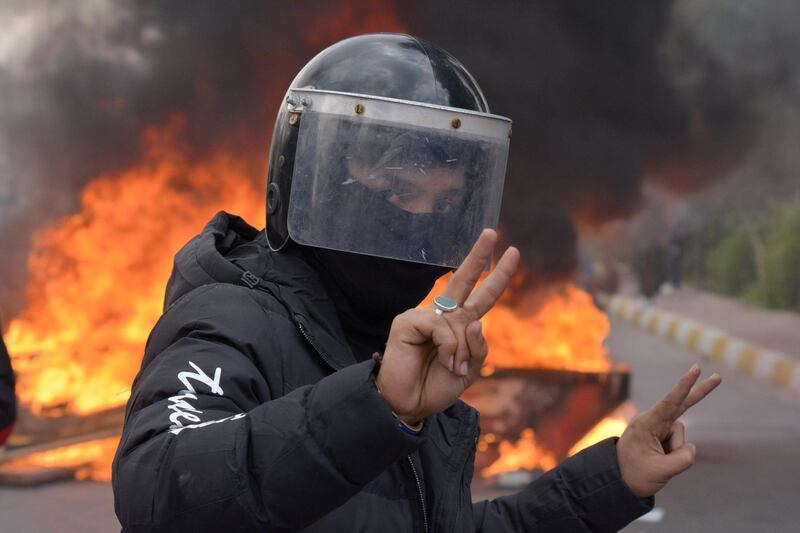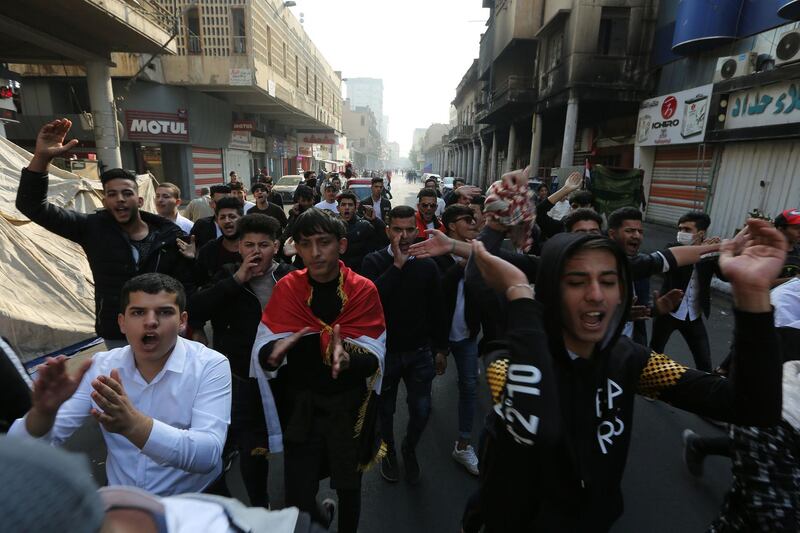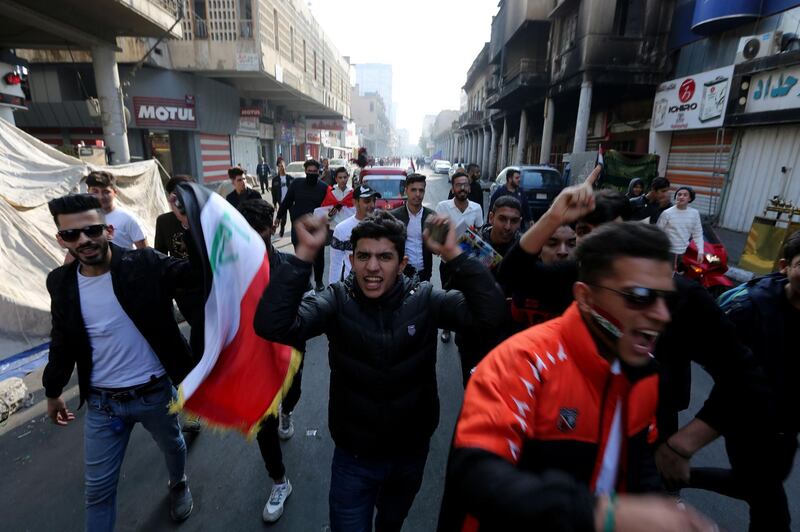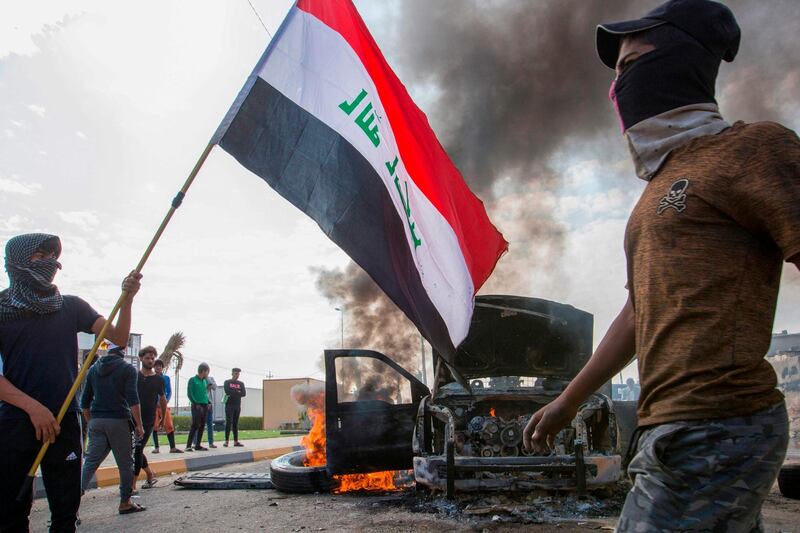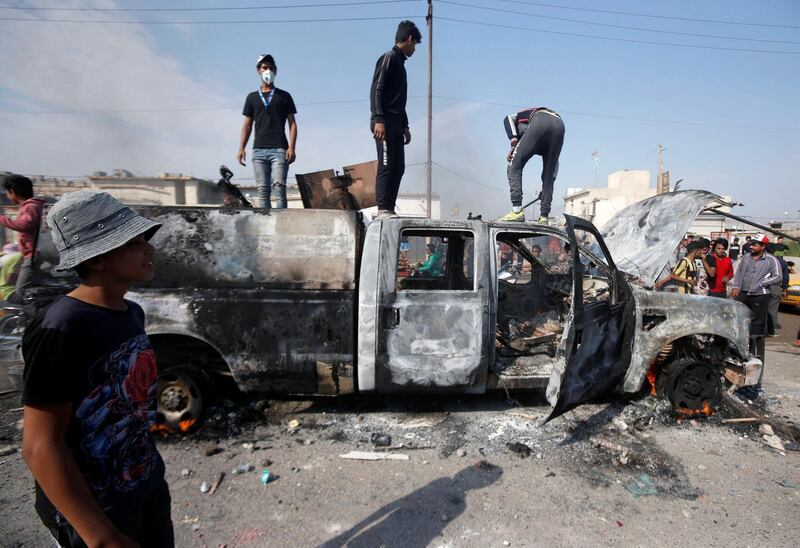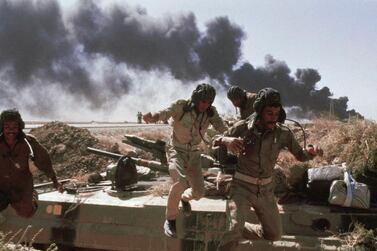Thirteen anti-government protesters were killed on Sunday by Iraqi security forces in one of the worst days of clashes in the country’s south, officials said.
Demonstrators outraged by government corruption and poor services burned tyres and blocked main roads.
Security and hospital officials said seven protesters were killed in the southern province of Basra, near Umm Qasr port.
Security forces used live bullets and tear gas to disperse the demonstrators.
Earlier in Basra, which accounts for nearly 85 per cent of the country’s crude oil production, protesters in the city centre used burning tyres to cut off main roads.
Officials said four protesters were killed in Nasiriyah province, and one each in Najaf and Diwaniyah.
A security official in Basra said it was one of the worst days since the start of the protest movement. At least 150 demonstrators were wounded.
Nasiriyah is in Iraq's mostly agricultural south, which has been caught in the protest movement demanding a total overhaul of a government system widely regarded as corrupt and inefficient.
Iraq's south, a rural area where tribal allegiances are strong, has been a centre of the movement for weeks, with pupils and teachers leading rallies outside schools and public offices.
The Education Ministry issued a directive for schools to open on Sunday but protesters in Nasiriyah defied the order.
In the southern city of Basra, demonstrators blocked main roads, including those leading to the ports of Umm Qasr and Khor Al Zubair.
Clashes also pitted protesters against security forces overnight in Karbala. Demonstrators lobbed Molotov cocktails from behind barricades set up in small alleyways.
Since October 1, protests have been staged over corruption, lack of jobs and poor services. The rallies have intensified into calls for an overhaul of the ruling system.
The activists accuse the political elite of awarding public sector jobs based on bribes, nepotism or sectarianism, while ignoring a youth unemployment rate of 25 per cent.
Iraq's Cabinet is discussing the 2020 budget before it is submitted to Parliament and government sources say it is expected to be one of the country's largest.
Top leaders have publicly acknowledged protesters' demands as legitimate and promised measures to appease them, including hiring, electoral reform and a Cabinet reshuffle.
But the rallies have continued, growing when demonstrators felt politicians were stalling.
On Sunday, protesters in Nasiriyah blocked five main bridges, shut down schools and burned tyres outside public offices.
They blocked access to oilfields and companies around the city, and burnt a government endowment centre that manages religious sites.
Medical sources said overnight that three protesters had been shot dead and at least 47 wounded by security forces in the city, some 300 kilometres south of the capital Baghdad.
An estimated 350 people have been killed and thousands wounded since October 1, according to a tally compiled by AFP, because authorities were not providing precise figures.
The protests are Iraq's deadliest and most widely spread in decades.
Sunday's violence came a day after the surprise visit of US Vice President Mike Pence to Iraq, where he dropped in on American troops in the country's west and met leaders in the Kurdish region to the north.
But Mr Pence did not meet officials in Baghdad because of security reasons.
Washington and Baghdad have been close allies since the US-led 2003 invasion that toppled dictator Saddam Hussein, but ties are now at their coldest in years.
Prime Minister Adel Abdul Mahdi has announced a massive recruitment drive and a Cabinet reshuffle to appease demonstrators, but insiders say these steps are to hide the usual horse-trading between parties.
Since 2003, the public sector payroll has tripled and yearly spending on wages has grown nine-fold to nearly $36 billion (Dh132.22bn), a recent study by Iraqi analyst Ali Al Mawlawi for the London School of Economics shows.
In a nation with a badly underdeveloped private sector, working for the government means job security but also an opportunity to make some illicit money on the side.
Officials demand bribes of up to tens of thousands of dollars to provide state contracts or even a signature on a public document, or to arrange a lucrative post for a friend or relative.
In a country where one in five people lives below the poverty line, according to the World Bank, the system of dividing the spoils has fuelled the anger on the streets while politicians maintain a business-as-usual attitude.
A leaked list of appointments to the Cabinet and directors general in ministries revealed many were relatives of Shiite cleric Moqtada Al Sadr and Hadi Al Ameri, a pro-Iran paramilitary chief whose bloc makes up the second leg of the embattled government.
Mr Ameri's brother, Faleh, was named the head of the Foreign Ministry's international organisations department, and his sister was also appointed in the ministry.
Neither had held public office or diplomatic positions, an Iraqi diplomat said.
Mr Al Sadr, a main sponsor of the current government, initially called on Mr Abdul Mahdi to resign but has since toned down his demands.
